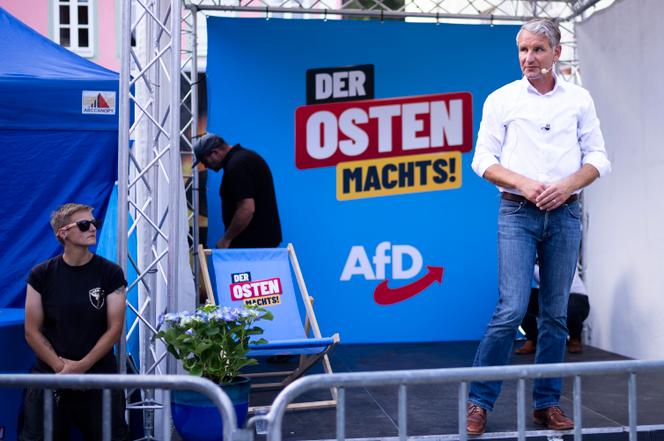


Steffen Mau is a professor of sociology at Berlin's Humboldt University. He recently published Ungleich vereint: Warum der Osten anders bleibt (Unequally United: Why the East Remains Different) in which he explains, among other things, why the far-right Alternative for Germany (AfD) party does best in the Länder that emerged from the former German Democratic Republic (GDR), which is set to be the case once again on Sunday, September 1, when the AfD is projected to get around 30% of the vote in the regional elections in Saxony and Thuringia.
In 1990-2000, the most commonly held view was that the East would "catch up" with the West. In economic terms, this has proven to be true. Twenty years ago, the unemployment rate in the East was 10 points higher than in the West; today, the gap is only 2 points. Similarly, we need to put an end to the image of an East Germany that has not recovered from the closure of the former GDR conglomerates. In recent years, there has been considerable investment in forward-looking sectors in the East, such as electric batteries and semiconductors.
But the economy isn't everything, and in other areas, we haven't caught up. I'm thinking first of all about demography. With the exception of Berlin, the East has lost 15% of its inhabitants since 1990, while the West has gained 10%. Older and with proportionately fewer immigrants, the population of the East is also more masculine, with ratios of sometimes 120 to 130 men for every 100 women in small towns and rural areas.
It's no coincidence that the AfD, whose membership is only 20% female, does best in these territories where there's an overrepresentation of single men, many of whom are steeped in patriarchal culture.
Absolutely. Firstly, because the AfD has also made great strides in the West, even if its numbers are lower there than they are in the eastern Länder. Secondly, because several political forces, such as the Greens, the Liberal Democratic Party [FDP] and, to a lesser extent, the Social Democratic Party [SPD] – the three parties in the coalition led by Chancellor Olaf Scholz – are on the verge of virtually disappearing from the political landscape in the East, apart from a few well-defined areas.
You have 62.67% of this article left to read. The rest is for subscribers only.
